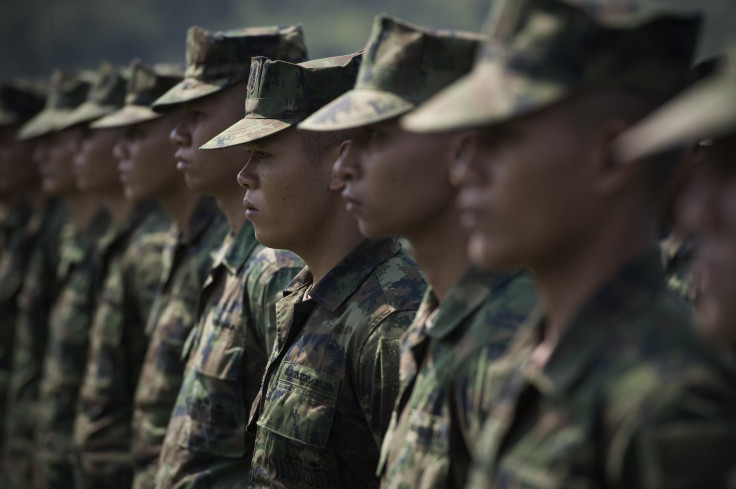Thailand Junta Controversy: Military Granted Power To Arrest And Detain Civilians, Spurring International Backlash

Several international human rights groups joined the U.S. State Department Tuesday in criticizing Thailand's military junta for claiming expanded powers of arrest in an executive order last week, saying the move would continue to limit civil liberties. The junta has ruled Thailand since 2014, when a military coup put Gen. Prayuth Chan-ocha in power.
“We continue to urge the Thai government to limit the role of the military in internal policing and to allow civilian authorities to carry out their duties,” Katina Adams, State Department spokeswoman for East Asia, said Monday, the Guardian reported, adding, “This includes returning the prosecutions of civilians to civilian courts and providing adequate due process and fair trial protections.”
The new powers for the Thai army include police powers to arrest and detain civilians as well as the ability to search homes, in some cases without a warrant. Prayuth led a May 22, 2014 coup, forcing Prime Minister Yingluck Shinawatra out of power, and has ruled through military law for nearly two years. While the coup leaders promised to conduct elections, voting is not slated until 2017.
"Repression becomes a daily reality." Alarm as Thailand's soldiers handed police powers. https://t.co/E83mOV26QH pic.twitter.com/JKdwe8sJ5U
— AJE News (@AJENews) April 5, 2016
The ruling military has cracked down on civil liberties, jailing dissenters and prosecuting suspected supporters of the former prime minister. Civilians are tried in military courts, and freedoms of speech and press have become increasingly limited.
Six groups, including Human Rights Watch, the International Commission of Jurists, Amnesty International, and the Asian Forum for Human Rights and Development (FORUM-ASIA) released a joint statement Tuesday condemning the executive order issued last week and calling for it to be rescinded.
"The order provides law enforcement powers to military officials who do not have law enforcement experience or protocols to summon, search, and arrest persons," said Evelyn Balais-Serrano, executive director of FORUM-ASIA, Deutsche Welle reported. "There is a real risk the order may be used to restrict the legitimate rights of people such as the rights to freedom of expression, assembly and association."
© Copyright IBTimes 2024. All rights reserved.






















